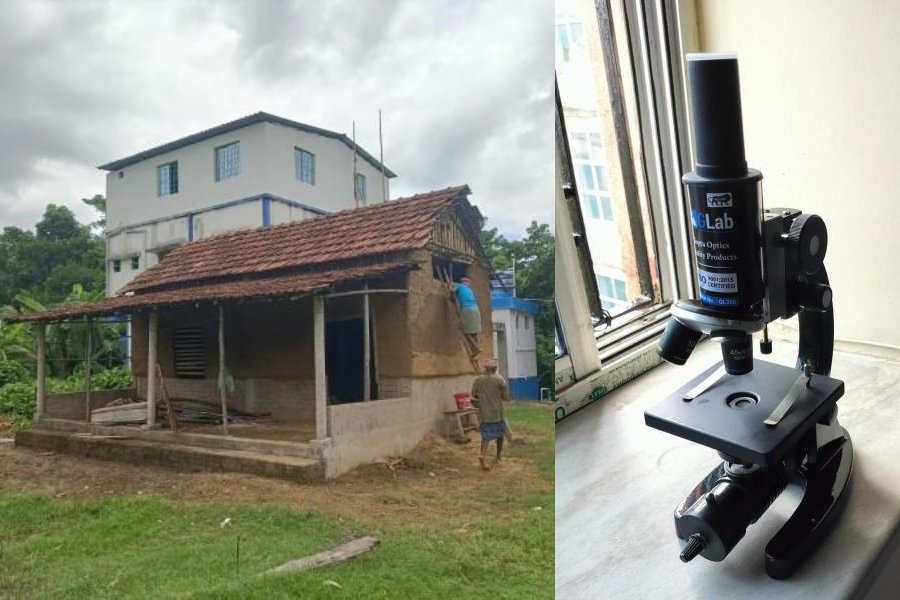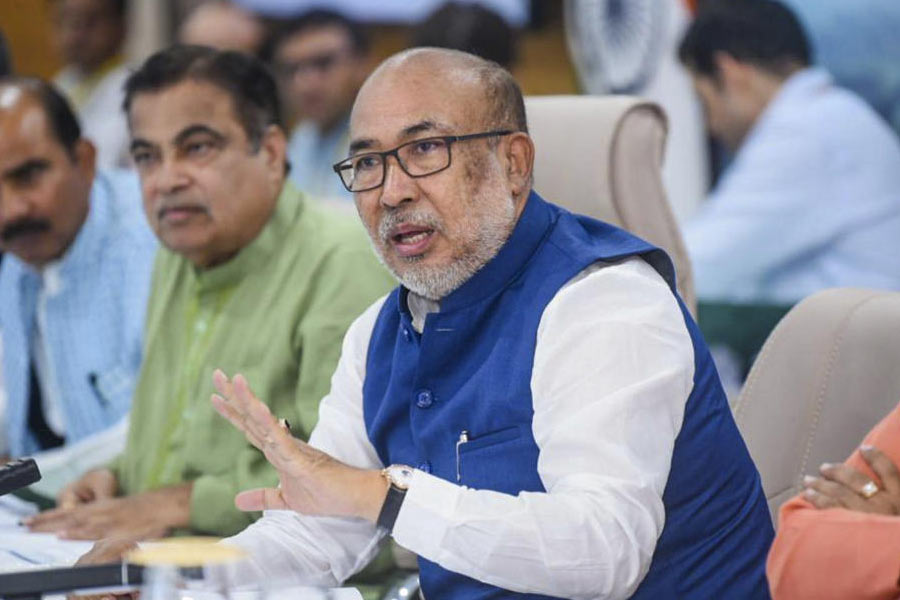A house for science where a visitor or a resident of the locality can walk in to learn how to use a microscope or aim a telescope at the sky will be inaugurated in West Midnapore’s Ghatal on Sunday, with an aim to “promote scientific spirit and
rationalism”.
Bigyan Bari, the name given to the tiled-roof hut that has come up at Palash Pai village, in Ghatal’s Daspur, is a dream project of a group of teachers from various institutions in Calcutta and some professionals.
They dream of having one such Bigyan Bari in every corner of Bengal one day.
Unlike large science museums that require huge funds and large tracts of land, the Bigyan Bari model entails setting up small centres of science where students would learn how to operate a telescope and develop an interest in watching the sky. Or a place to put an onion peel under the microscope and observe the cells.
The centre will not be controlled by the men from the city, though they have set
it up. Residents, students and teachers from the area will run its affairs, the organisers said.
A retired schoolteacher gave a portion of his land to set up this house for science.
“We want local students and local people to get involved in Bigyan Bari. The presence of a microscope or a telescope close to their home might ignite a lot of interest in them about science and how these instruments work,” said Dipyaman Ganguly, a scientist with the Indian Institute of Chemical Biology and one of the brains behind Bigyan Bari.
“It is an eight-inch telescope with which students will be able to see a whole range of things in the sky, the stars and the galaxy. We are hoping that once they get a taste of skywatching with a telescope, they will get hooked on using the telescope,” said Ganguly, a recipient of the Shanti Swarup Bhatnagar Prize.
A small library of science books, mostly in Bengali, and a few electronic tools will be available in the house, too.
Besides Ganguly, Gautam Basu, a former professor at Bose Institute; Joysankar Bhattacharya of IIM Indore; Soumya Chattopadhyay of IBM; Dipankar Maitra,
an associate professor at Wheaton College in the US; Partha Pratim Roy, Emeritus Teacher at South Point High School; and Abhijit Chakrabarty, a former professor at Saha Institute of Nuclear Physics, are among others who have worked to set up Bigyan Bari.
Setting up Bigyan Bari cost about ₹3 lakh. The land came for free.
Rabindranath Jana, a retired biology teacher in a local higher secondary school, and his brother Bhabatosh Jana, a retired pharmacist, donated a portion of their land for the project.
“I donated a portion of the plot to a primary health centre that is already running. I also donated another portion to a school for children. When I heard about the Bigyan Bari plan, I said they can use a portion of the land to set up this house,” Rabindranath said.
The men behind Bigyan Bari want to set up at least a couple of more such centres in the state in a few years.
“If we can show it to the government that they can promote science and learning by setting up Bigyan Baris in blocks and villages, it might interest them. The small budget of setting up one such house is an advantage. The panchayats can set up such science houses from their budget and then run the centres,” said one of the men behind the Ghatal centre.










